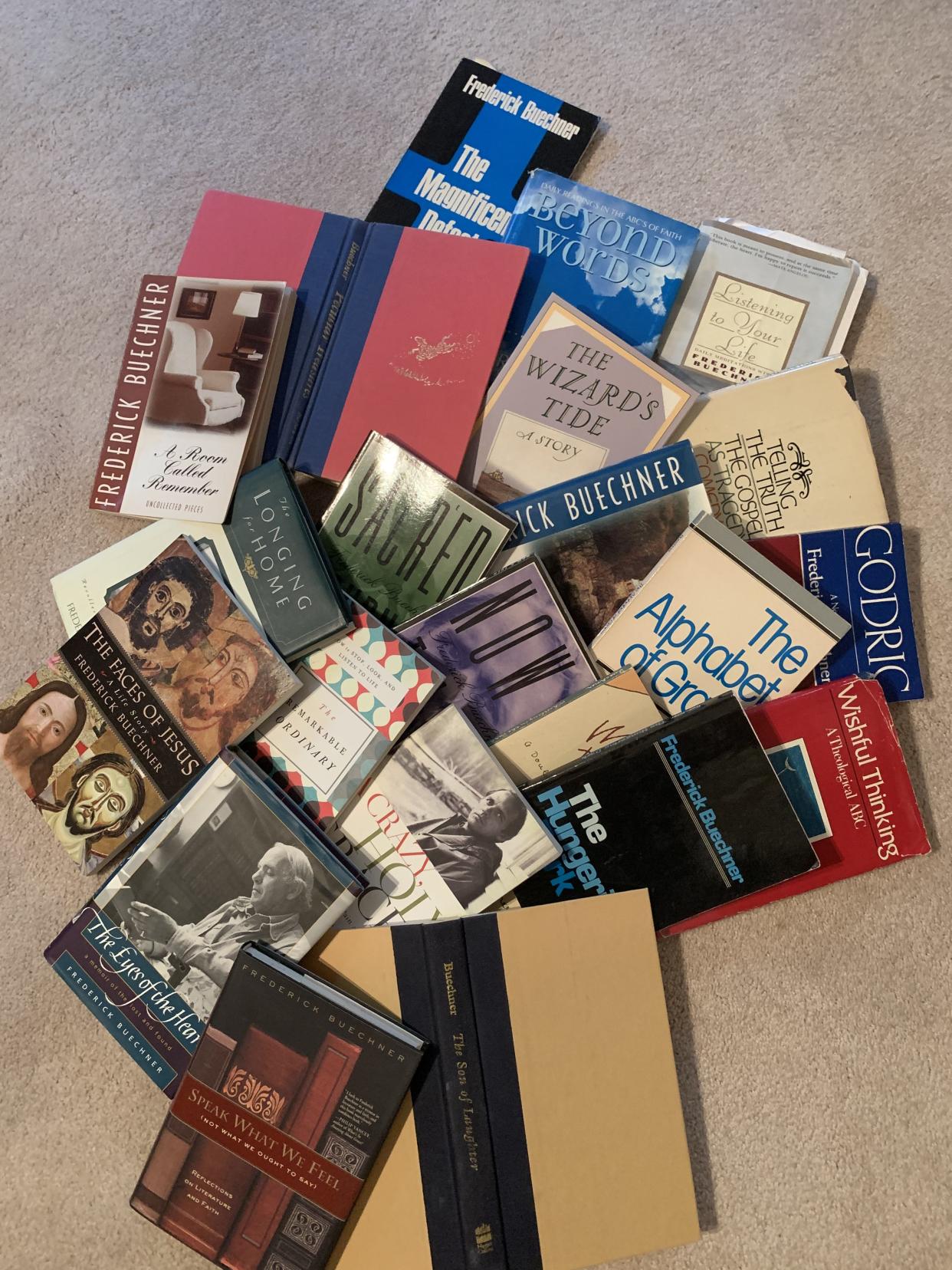Remembering Frederick Buechner, sophisticated apostle

- Oops!Something went wrong.Please try again later.
The name Frederick Buechner may not ring a bell with the average reader, but among broad-minded religious circles, he was idolized. A novelist, essayist and memoirist known for uncompromising honesty and insight, Buechner died on August 15 at the age of 96. Tributes from two generations of grateful readers flooded social media, and both the New York Times and the Washington Post published obituaries.
He was adept at articulating the struggle to have faith. Based on his own experiences, including the suicide of his father, he attempted to make the modern search for God credible to people of a certain sophistication who want to believe but aren’t sure it makes sense. Imagine if Don Draper of “Mad Men” had turned to Christianity.
Buechner was a contemporary of John Updike, and both were educated at elite schools and began writing novels that sharply observed post-World War II America. Unlike Updike, Buechner did not sustain his early success and eventually turned to teaching. Among his students at Phillips Exeter Academy was the author John Irving. Also, unlike Updike, Buechner’s personal life was stable and his treatment of religion was not ironic.

Buechner was not raised in a religious family, but in 1954, at the age of 27, he had a conversion. On a Sunday morning, on impulse, he dropped into Madison Avenue Presbyterian Church in New York City, whose pastor was George Buttrick, one of the 20th century’s great preachers. Buechner related what happened in his autobiographical book “The Alphabet of Grace.”
“(A)gain and again, he said, Jesus was crowned in the hearts of those who believed in him, crowned king. … And then with his head bobbing up and down so that his glasses glittered, he said in his odd, sandy voice, the voice of an old nurse, that … Jesus is crowned among confession and tears and great laughter, and at the phrase great laughter, for reasons that I have never satisfactorily understood, the great wall of China crumbled and Atlantis rose up out of the sea, and on Madison Avenue, at 73rd Street, tears leapt from my eyes as though I had been struck across the face.”
Buechner entered Union Theological Seminary in New York, earned a divinity degree, and was ordained by the Presbyterian Church as an evangelist, in this case an evangelist who spread the gospel by literary means.
He wrote 39 books, including 10 novels, two of which were nominated for major literary prizes. A tetralogy centered on the odd character of Leo Bebb, a Florida preacher who runs a shabby diploma mill. I found Buechner’s novels to be a bit vague and meandering for my taste, but according to the Times obituary, the novelist and critic Cynthia Ozick commented on one of the Bebb books, “When the Redeemer is called on only to help a man make a living, does he make a life instead? Buechner implies yes.”
In 1983, I heard Buechner give a series of lectures at Union Presbyterian Seminary in Richmond, Va. I was prompted to buy his little book “Wishful Thinking: A Theological ABC.” It is a kind of devil’s dictionary in which he takes religious words and subjects them to his dry wit and wisdom, yielding little gems that can cut or illuminate. In his definition of faith, he recalls the story of Abraham and Sarah, “two old crocks” who laughed when God promised they would have a child.
“They laughed because they knew only a fool would believe that a woman with one foot in the grave was soon going to have her other foot in the maternity ward. They laughed because God expected them to believe it anyway. They laughed because God seemed to believe it. … They laughed because if by some crazy chance it happened to come true they would really have something to laugh about… If someone had come up to Jesus when he was on the cross and asked him if it hurt, he might have answered, like the man in the old joke, ‘Only when I laugh.’ But he wouldn’t have been joking. Faith dies, as it lives, laughing.”
Amid great laughter, it was grace that Frederick Buechner had a vocation to hold up a candle in the midst of a dark and crazy world.
Cary McMullen is a retired journalist and the former religion editor of The Ledger.
This article originally appeared on The Ledger: Remembering Frederick Buechner, sophisticated apostle

